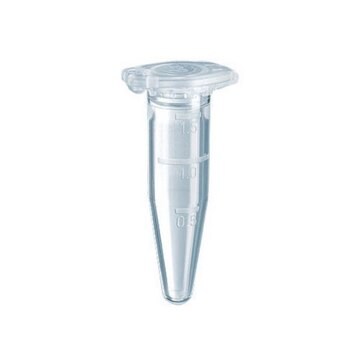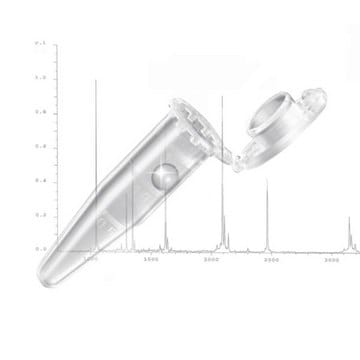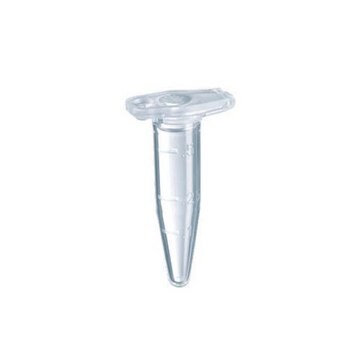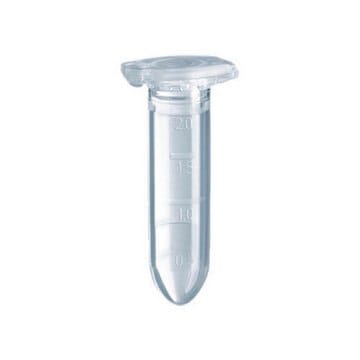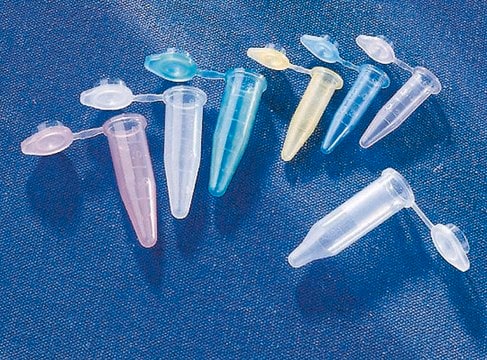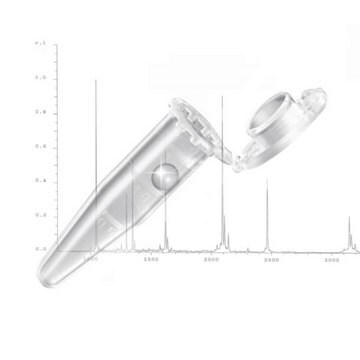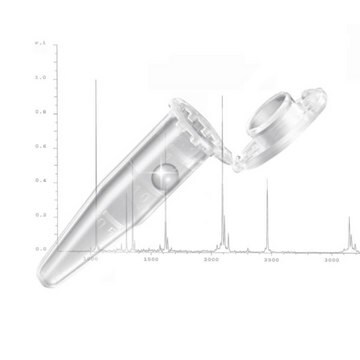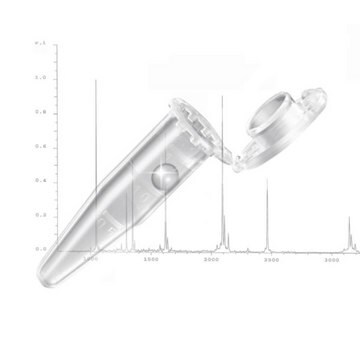EP022431102
Eppendorf® Protein LoBind tubes
capacity 2.0 mL, PCR clean, pkg of 100 ea (2 x 50ea)
Sign Into View Organizational & Contract Pricing
All Photos(1)
About This Item
UNSPSC Code:
41121703
Recommended Products
material
(push fit)
polypropylene cap
sterility
non-sterile
feature
PCR clean
packaging
pkg of 100 ea (2 x 50ea)
manufacturer/tradename
Eppendorf® 022431102
parameter
-18,000 × g max. RCF
capacity
2.0 mL
diam.
10.5 mm
color
clear
suitability
suitable for PCR
binding type
low binding surface
Looking for similar products? Visit Product Comparison Guide
General description
Avoid losing valuable samples during centrifugation, incubation and storage! Rely on the excellent protection offered by the hinged Safe-Lock lid. It contains all of our experience from 50 years of continuous optimization and development. Trust the original Eppendorf Safe-Lock Tubes, because your samples deserve only the best.
Protein LoBind Tubes, snap cap, Protein LoBind, 2.0 mL, PCR clean, colorless, 100 tubes (2 bags × 50 tubes)
- Eppendorf LoBind material ensures optimized sample recovery for improved assay results
- Free of surface coating (e.g., silicone) to minimize the risk of sample interference
- Lot-certified PCR clean purity grade: free of human DNA, DNase, RNase and PCR inhibitors
- Available in tube, microplate, and deepwell plate formats for easy-up scaling
- Precise lid sealing to minimize evaporation
Features and Benefits
Eppendorf Protein LoBind Tubes are specifically designed to ensure you get maximal protein recovery.
Legal Information
Eppendorf is a registered trademark of Eppendorf AG
Choose from one of the most recent versions:
Certificates of Analysis (COA)
Lot/Batch Number
Sorry, we don't have COAs for this product available online at this time.
If you need assistance, please contact Customer Support.
Already Own This Product?
Find documentation for the products that you have recently purchased in the Document Library.
Kelly Hodge et al.
Journal of proteomics, 88, 92-103 (2013-03-19)
Mass spectrometry, in the past five years, has increased in speed, accuracy and use. With the ability of the mass spectrometers to identify increasing numbers of proteins the identification of undesirable peptides (those not from the protein sample) has also
Arzu Umar et al.
Proteomics, 7(2), 323-329 (2006-12-14)
Proteomics assays hold great promise for unraveling molecular events that underlie human diseases. Effective analysis of clinical samples is essential, but this task is considerably complicated by tissue heterogeneity. Laser capture microdissection (LCM) can be used to selectively isolate target
Steven J Bark et al.
Journal of proteome research, 6(11), 4511-4516 (2007-09-14)
Differential recovery of peptides due to nonspecific adsorption can seriously compromise reproducibility and quality of proteomic data for peptide analyses by liquid chromatography-mass spectrometry (LC-MS). This study demonstrates large variations in reproducibility and quantitation of LC-MS data for peptides derived
Graziano Colombo et al.
Free radical biology & medicine, 52(9), 1584-1596 (2012-03-06)
Cigarette smoke, a complex mixture of over 7000 chemicals, contains many components capable of eliciting oxidative stress, which may induce smoking-related disorders, including oral cavity diseases. In this study, we investigated the effects of whole (mainstream) cigarette smoke on human
Hongchang Qu et al.
Immunobiology, 218(4), 496-505 (2012-07-17)
Therapeutic modulation of the complement system has become increasingly important in line with the growing recognition of the role of complement in numerous diseases. Compstatin, a peptidic inhibitor that acts at the central level of the complement cascade, is currently
Our team of scientists has experience in all areas of research including Life Science, Material Science, Chemical Synthesis, Chromatography, Analytical and many others.
Contact Technical Service